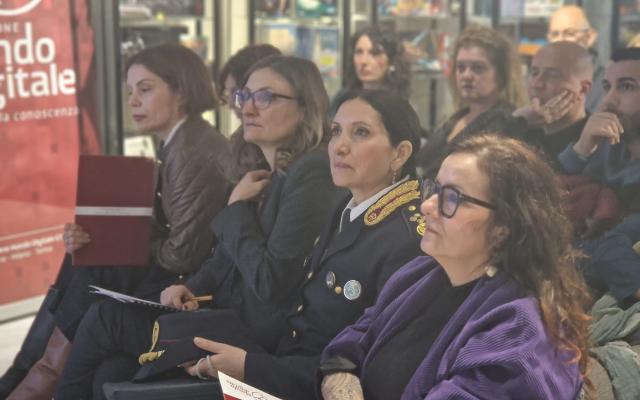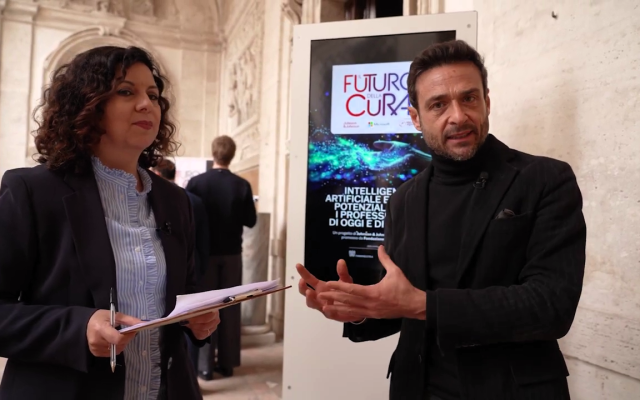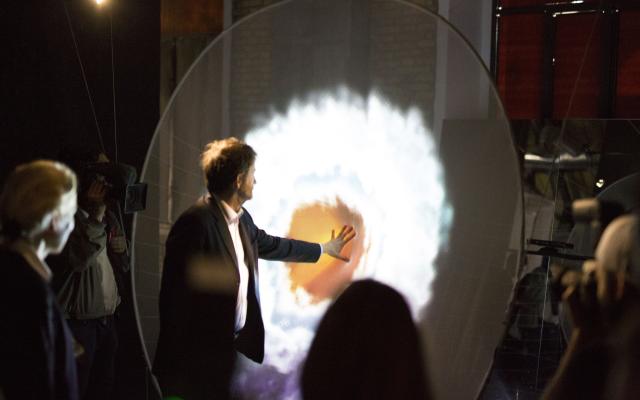Today, the first operative meeting of Project P.A.R.I - Active Policies and Resources for Integration will be held in Pescara. The project, which is based on the new FAMI Calls, will be developed over a three-year period (2019-21) over a nearly doubled time period. The role of regional authorities has been strengthened in terms of complementary service supply and management, as well as that of local agencies in the SPRAR Network in promoting actions and selecting targets. Alpha-level educational activities and monitoring and evaluation actions developed by certification agencies in the CLIQ Consortium have been introduced experimentally.

P.A.R.I - Active Policies and Resources for Integration
April 17, 2019 – 10:00 am
Regione Abruzzo, “Corradino D’Ascanio” Conference Hall
Piazza Unione 14, Pescara

![]() AGENDA
AGENDA
WELCOME AND INTRODUCTION (Regione Abruzzo)
Short summary of the work conducted by the Region on FAMI projects and complementary activities
Presentation of project partners
PROJECT PARI
Results of 2016-18 Regional Plans
Main novelties in P.A.R.I.: project activities and timeline
Allocation of educational actions amongst CPIAs and relative budget
Initial hypothesis for course scheduling at CPIAs
SERVICES: COMPLEMENTARY, SUPPORT AND IMPROVEMENT
Implementation hypotheses and identification of needs
Didactic courses for teachers and operators
Shared social research
DOCUMENTS AND DEADLINES
Introduction to administrative and accounting procedures
Monitoring and accounting deadlines
Budget modification requests and course types
OTHER BUSINESS
PROJECT PROFILE
Project P.A.R.I - Active Policies and Resources for Integration, which is based on the new FAMI Calls (2019-21), aims to create a new network of subjects sharing a systematic and multidimensional approach to integration to promote a culture of lifelong learning amongst migrants and the development of strategic competences (know how) to improve quality of life and local development.
Objectives
- Contribute to the development of a new culture of integration by improving the regional network;
- Provide third country nationals in the region with a true understanding of the language, culture and society in Italy;
- Integrate basic linguistic support with experimental courses at various levels;
- Enhance courses with functional literacy tools and courses focusing on linguistic and cultural aspects;
- Promote access to educational services for targets in disadvantaged contexts;
- Test innovative solutions to increase educational success of targets.
Partnership
- Regione Abruzzo (lead partner)
- CPIA L’Aquila
- CPIA Pescara-Chieti
- CPIA Provincia di Teramo
- Fondazione Mondo Digitale
- Abruzzo Regional School Department
Network
- Prefecture of L’Aquila
- Prefecture of Chieti
- Prefecture of Pescara
- Prefecture of Teramo
- Municipality of Pescara
- Municipality of Teramo
- Municipality of Fossacesia
- Municipality of L’Aquila
- Municipality of Roseto degli Abruzzi
- Municipality of Scoppito
- Municipality of Lentella
- Municipality of Cansano
- Municipality of Carunchio
- Municipality of Guardiagrele
MAIN ACTIVITIES
- Project management, coordination and monitoring; administrative and accounting activities; auditing;
- Educational actions - (a) Introductory educational activities at 3 partner CPIAs and relative course hubs: development of modular courses based on welcome, orientation and evaluation activities, as well as A1 and A2-level Italian courses; (b) Specific educational activities at 3 partner CPIAs and relative course hubs: development of experimental educational modules for primary Italian literacy (Alpha and pre-A1 levels) and more advanced levels (B1);
- Complementary Services: services promoting access, participation and flexibility; local courses for participants in remote areas; linguistic and cultural mediation courses; local orientation and information courses; information and awareness-raising courses; services for local and virtual activities; services promoting disadvantaged categories; distance training courses for independent learning; services for civic and linguistic education;
- Support and enhancement services: consolidation of governance processes and the development of local networks; Didactic improvement courses for teachers and operators; shared social research;
- Communication and dissemination activities: communication, digital storytelling and final event.
Expected Results
- 900 third country nationals enrolled in language courses, including 600 beneficiaries of complementary services;
- 83 courses (alpha, pre-A1, A1, A2 and B1 levels): 25 level A1, 25 level A2, 10 level pre-A1, 20 level B1, and 3 level alpha;
- 4 proximity courses in remote areas;
- 7880 hours of educational courses for foreign citizens
- No less than 650 third country nationals successfully complete courses;
- 50 teachers on professional updating courses.



